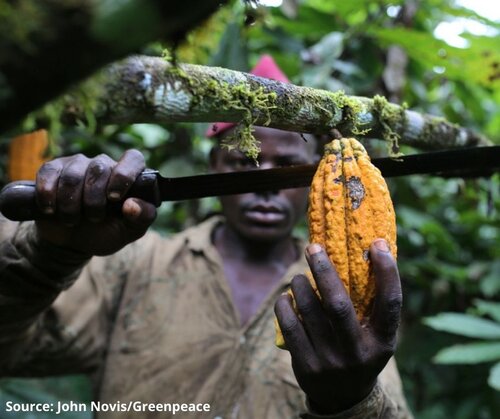
The proposed EU Regulation on deforestation-free products aims to ensure products cannot be placed on the EU market if they have caused deforestation, forest degradation, or violated producer country laws. The MEP leading the European Parliament’s position on the proposal has taken on some key concerns of smallholder groups and NGOs in producer countries, while others await integration.
The draft report, released 24 March 2022 by Luxembourgish MEP Christophe Hansen of the centre-right European Peoples’ Party, proposes that companies placing goods on the EU market respect international law and standards on the rights of Indigenous Peoples and local communities (IPLC), and that they report on actions to support smallholder suppliers’ compliance. It also proposes that the Regulation include rubber in its scope.
This responds in part to calls made in January by a group of IPLC associations from 33 countries, who wrote to EU decision-makers demanding that the Regulation include respect for their land rights. In March 2022, Cameroonian community groups and workers in rubber plantations also wrote a letter calling for the inclusion of human rights, and rubber to be in the scope of commodities covered, pointing to the abuses they suffer as a result of rubber production.
Hansen’s proposals on smallholders also reflect some demands made by a coalition of European NGOs working to protect smallholders’ interests, and the Indonesian Union of Oil Palm Smallholders’ recent plea to take more account of smallholders’ interests.
The fate of another important smallholder demand – a clear traceability requirement – is less clear; this need was expressed both by the Indonesian Union of Oil Palm Smallholders and a group of Ivorian smallholders’ organisations representing more than 35,000 cocoa farmers. On the one hand, Hansen’s report appears to maintain a traceability requirement based on geolocation. On the other, he introduces the idea of different traceability obligations per sector, which could mean that in some sectors, industry will successfully lobby for the removal of this obligation.
Other concerns of smallholder groups and producer country NGOs are not yet met, including the Cameroonian groups’ demand for the Regulation to allow them to seek compensation from companies. And neither the European Commission’s proposal nor Hansen’s draft report address a key request from both the Indonesian oil palm smallholders and West African cocoa smallholders: a fair price for their product. The last is ardently advocated by cocoa smallholder farmers’ groups and NGOs both as a key condition for “sustainability” to be implementable, and as a human right in itself. As yet, the EU has not produced a clear way forward on the fair price issue.
The regulatory proposal now being debated by the European Parliament and Council of the European Union could be finalised by the end of 2022.
Categorias: News, Forest Watch
